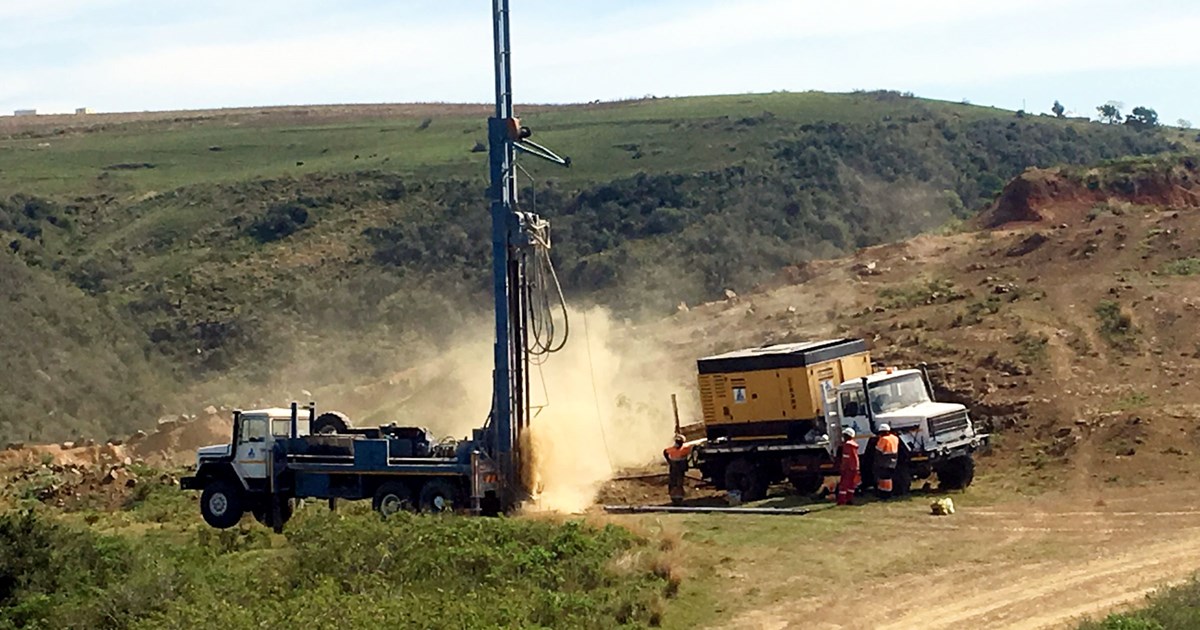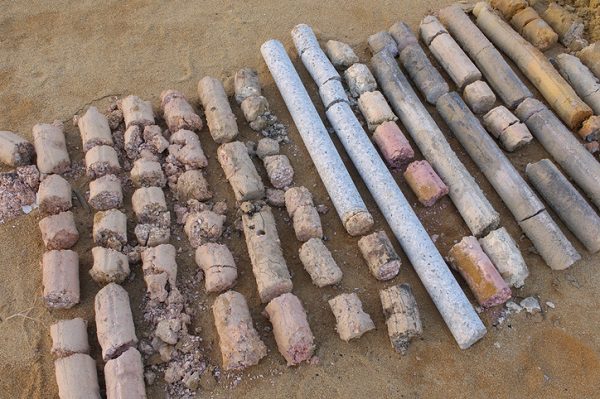Everything You Need to Understand About Geotechnical Engineering for Your Following Job
Everything You Need to Understand About Geotechnical Engineering for Your Following Job
Blog Article
The Value of Geotechnical Engineering in Attending To Environmental Obstacles and Enhancing Building And Construction Safety
Geotechnical engineering serves as a cornerstone in the crossway of ecological stewardship and building and construction safety, providing important understandings right into the habits of soil and rock under different conditions. By applying tactical website examinations and customized mitigation steps, geotechnical designers play an essential duty in guarding both human lives and ecological honesty.

Role of Geotechnical Engineering
Geotechnical design plays a crucial function in the layout and building and construction of facilities by attending to the actions of dirt and rock products under different conditions. This field of design is necessary for recognizing the communication in between structures and the ground, which consists of figuring out the load-bearing ability of soil, assessing security, and forecasting possible negotiation or failing.
Geotechnical designers are accountable for carrying out website examinations, which involve sampling and screening dirt and rock to collect information on their physical and chemical residential properties. This info is vital for creating structures, retaining walls, and other earth-retaining frameworks that make sure safety and security and durability. Geotechnical engineering notifies the option of proper construction methods and materials, therefore decreasing risks associated with soil behavior.
In addition, the assimilation of geotechnical design principles right into city planning and ecological monitoring is important for dealing with obstacles such as ground contamination and groundwater administration. By understanding geotechnical elements, engineers can create sustainable services that boost the durability of framework against natural hazards, while additionally promoting environmental stewardship. Inevitably, the duty of geotechnical design is indispensable for achieving safe, sturdy, and eco conscious construction practices.
Dirt Disintegration Reduction
Soil disintegration poses a considerable danger to both ecological stability and facilities stability, influencing roughly 24 billion lots of fertile soil lost yearly worldwide. This sensation is worsened by variables such as deforestation, urbanization, and inadequate agricultural techniques. Geotechnical design plays a critical role in creating efficient dirt erosion reduction methods that safeguard both the environment and construction tasks.
One approach requires the implementation of erosion control techniques such as plants growing, which stabilizes dirt via root systems. In addition, the construction of maintaining terraces and wall surfaces can successfully decrease surface overflow and shield vulnerable areas from erosion. Correct drain design is additionally important; it decreases water accumulation and guides excess drainage away from vital frameworks.
In addition, geotechnical designers use soil stablizing methods, such as the application of geotextiles and eco-friendly floor coverings, to boost dirt cohesion and protect against deterioration - about geotechnical engineering. Regular tracking and evaluation of erosion-prone websites allow prompt treatments, making certain lasting sustainability. By incorporating these methods, geotechnical design not only mitigates the influences of dirt disintegration but additionally adds to the strength of facilities versus environmental challenges, inevitably cultivating a more secure and more lasting built environment
Groundwater Defense Techniques
Groundwater offers as an essential source for alcohol consumption water, agriculture, and commercial procedures, making its security important for ecological sustainability and public health. Effective groundwater security methods are essential in mitigating contamination risks and guaranteeing the longevity of this source.

Normal monitoring of groundwater quality is additionally crucial, enabling very early detection of contamination resources and promoting prompt remediation efforts. Employing innovative technologies, such as geophysical surveys and remote sensing, aids in recognizing prospective hazards to groundwater gets.
Moreover, public education and stakeholder engagement are essential, cultivating area assistance for groundwater protection campaigns. geotechnical companies in south africa. By combining regulative actions, technological improvements, and neighborhood involvement, we can develop a detailed structure that safeguards groundwater resources while promoting lasting development and building and construction techniques
Landslide Danger Monitoring
Landslides present significant dangers to both human safety and facilities, making effective danger management approaches essential. Geotechnical engineering plays an essential duty in identifying, assessing, and mitigating landslide threats. An extensive understanding of incline security, soil mechanics, and hydrology is essential for creating reliable danger management plans.
The primary step in landslide click for more info risk administration includes comprehensive website examinations, that include geological mapping and dirt screening. These examinations assist engineers examine the potential for landslides by determining critical factors such as incline angles, soil make-up, and water material. Making use of advanced innovations such as remote sensing and geophysical studies can boost the precision of these assessments.
As soon as threats are identified, ideal reduction steps can be implemented. These may include design remedies such as keeping walls, drainage systems, and incline stablizing methods. Moreover, keeping an eye on systems should be established to discover indications of ground activity and modifications in water levels, enabling for aggressive treatments.

Enhancing Building Security
Building and construction websites often present a myriad of risks that can endanger worker safety and job honesty. Geotechnical engineering plays a critical duty in boosting building and construction safety by supplying vital understandings into subsurface problems. Through thorough soil and rock evaluation, geotechnical engineers can determine potential dangers, such as soil instability, groundwater problems, and seismic vulnerabilities, which may endanger the security of construction tasks.
Implementing geotechnical options, such as appropriate foundation style and the usage of keeping frameworks, reduces these dangers considerably. These solutions not just guarantee the security of the structures being built yet also produce a much safer working environment for building employees. In addition, rigorous tracking and evaluation of site problems throughout the construction procedure are crucial. Utilizing sophisticated innovations like ground-penetrating radar and inclinometer systems makes it possible for real-time data collection, enabling timely treatments when risks are identified.
In addition, promoting a society of safety through training and adherence to established visit this web-site security methods even more improves building website safety and security. By integrating geotechnical know-how right into the preparation and implementation stages, building jobs can attain higher safety requirements, eventually shielding employees and making certain effective job conclusion.
Verdict
Finally, geotechnical design offers as an essential technique in advertising and dealing with environmental challenges building and construction safety and security. Via efficient soil disintegration mitigation, groundwater protection strategies, and landslide threat monitoring, geotechnical engineers contribute to the growth of durable infrastructure. The integration of these techniques promotes a much safer construction atmosphere and boosts the sustainability of civil engineering projects. Ultimately, the knowledge of geotechnical engineers is crucial in securing both natural sources and human lives against potential threats.
Geotechnical engineering serves as a keystone in the intersection of ecological stewardship and building and construction security, supplying vital understandings into the habits of dirt and rock under various conditions. Geotechnical engineering educates the selection of ideal building click resources and construction techniques and materials, consequently minimizing dangers linked with dirt behavior.
Geotechnical engineering plays a crucial role in developing efficient dirt erosion mitigation approaches that protect both the atmosphere and building and construction projects.
Furthermore, geotechnical engineers utilize dirt stabilization methods, such as the application of geotextiles and eco-friendly floor coverings, to enhance soil cohesion and avoid deterioration. Via detailed soil and rock analysis, geotechnical engineers can determine prospective dangers, such as dirt instability, groundwater concerns, and seismic vulnerabilities, which might jeopardize the safety and security of building and construction tasks.
Report this page